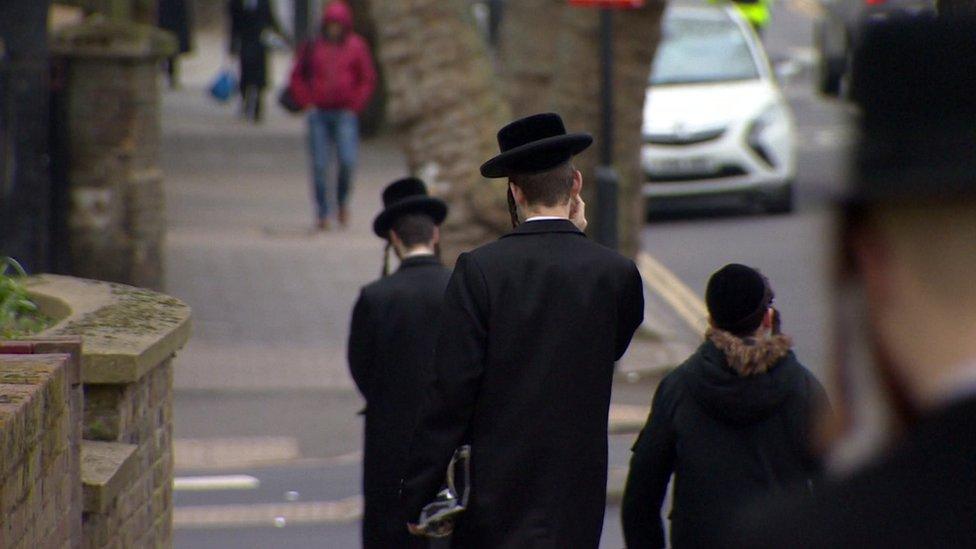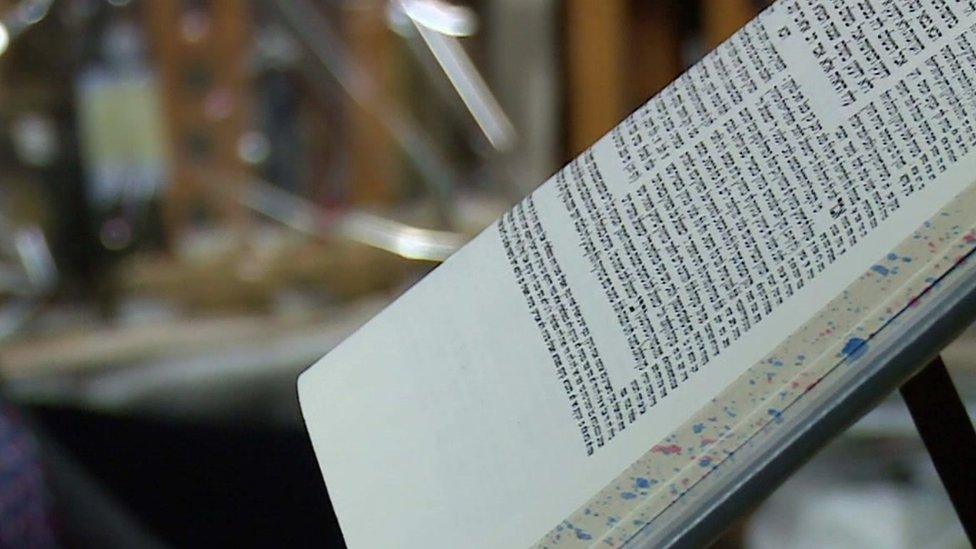Unregistered Jewish schools prompt call for new laws
- Published

Up to 1,500 boys are estimated to attend unregistered schools in Hackney
The government must act to help up to 1,500 ultra Orthodox Jewish boys going to unregistered schools in the London borough of Hackney, says a report.
Poor safety and wellbeing and a narrow religious education are key concerns, says a special commission set up by Hackney Council.
The law on such illegal schools is "woefully inadequate", say the authors.
And they say they are "baffled by an apparent lack of desire" by government to rectify the situation.
The year-long investigation was sparked after 34 boys and two teachers from one of Hackney's unregistered schools, external had to be rescued from a Kent beach in 2016 after becoming stranded by the tide when an outing went wrong.
The authors took evidence from the Department for Education, Ofsted, Hackney Council's social care and education departments and the local safeguarding children board, as well as Humanists UK, the Union of Hebrew Congregations and the Partnership for Jewish Schools.
The commission also conducted a survey, inviting members of the borough's ultra Orthodox Haredi Jewish community to share their experiences anonymously.
The report details "a complex and difficult situation" where the cultural and educational traditions of the Haredi community "are at odds with the council's statutory duty to safeguard local children and central government's duty to ensure they receive an appropriate education which conforms to national standards".

The schools focus on the study of religious texts rather than on secular subjects
The schools watchdog Ofsted estimates there could be about 300 unregistered schools across England, with about 6,000 pupils, often from ultra-conservative Muslim, Christian and Jewish backgrounds.
Legislation around the regulation of unregistered education settings "is at best patchy and at worst contradictory", say the authors.
The report says loopholes in the law on the right to home educate amount to serious failings that allow these establishments to "operate with impunity".
Hackney Council has been lobbying central government for stronger legislation for "some years", says the report, but the Department for Education "has indicated that it has no plans to legislate in the current legislative cycle".
The report urges the government to:
tighten regulations on home education and the definition of what constitutes a school
require parents who home educate to notify their local council
give councils powers to ensure the quality of education for home-educated children.
The report also urges Hackney council to formalise its own approach to unregistered schools and calls on the Haredi community to engage in improving pupils' safety and wellbeing.
The council should work in partnership with the community as "actions which are imposed will only further marginalise the community and result in parents making choices 'under the radar'", it adds.
'Hugely concerning'
Humanists UK education campaigns manager Jay Harman said there was evidence that children were "trapped" within illegal religious schools, being indoctrinated and denied a basic education.
He urged the council to talk to Haredi parents direct about their children's education rather than going solely through community leaders.
Ofsted said it continued to work with government, local councils and law enforcement to ensure all education settings operated legally.
Regional director for London Mike Sheridan said: "Ofsted has long called for the law to be strengthened so that unregistered settings can be closed down or registered much more quickly.
"A number of unregistered faith settings are deliberately operating outside of the legal framework and this is hugely concerning.
"Our inspectors have found dilapidated and unsafe premises and unvetted staff.
"Pupils can leave these settings with limited, if any, ability to read and write in English, no qualifications and no skills to get work."
The Department for Education said it had announced in November that it would be strengthening the guidance for parents and local authorities on home education.
"Parents have a right to teach their children at home if they choose but it's also right that we make sure all children are getting a safe and suitable education.
"This guidance will help parents understand their rights and responsibilities on home education, and will mean local authorities are clear on the action they can take where these responsibilities are not being met."
- Published31 March 2016